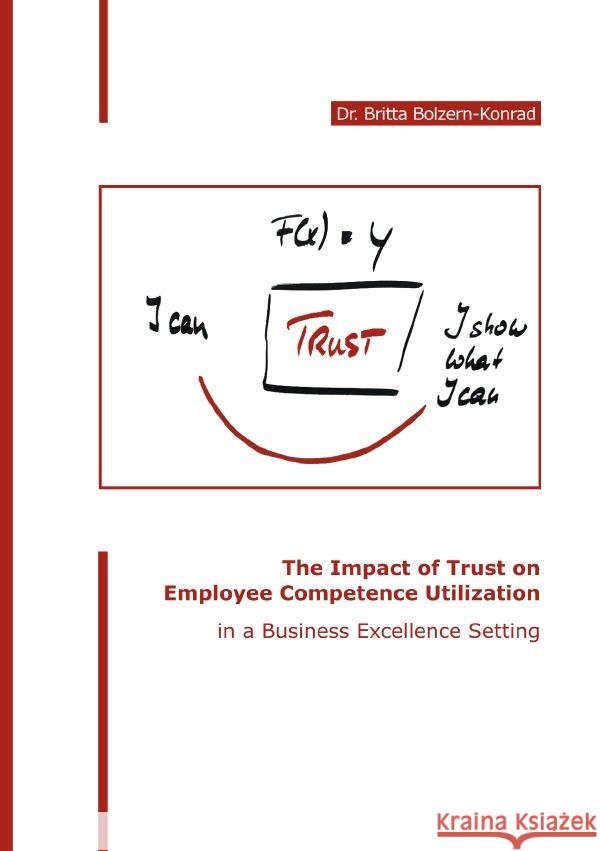The Impact of Trust on Employee Competence Utilization in a Business Excellence Setting » książka
The Impact of Trust on Employee Competence Utilization in a Business Excellence Setting
ISBN-13: 9783754952016 / Angielski / Miękka / 104 str.
The realization of existing competencies' potentials is seen as a scarce 'vital' differential advantage for companies. The research study investigated the impact of trust on employee competence utilization in a business excellence context and developed a new integrative trust model for organizations. The survey was directed to employees of selected companies in a pragmatic mixed methods application. As a result, the study suggested a significant positive correlation between trust and employee competence utilization, and supports the integration of character, relationship and trust behaviour. In order to promote applicability for management, frameworks for strategic management are developed in a balanced scorecard approach. Being a 'monetary free' resource trust plays a key role in strategic management opening potentials otherwise not available and being applicable in situations where trust is the only alternative, especially if control is not possible or of high cost, e.g. in remote office situations. The implementation of trust-frameworks is also valid in change processes, to cope with the challenges of balancing between flexibility and stability, e.g. in digital transformation processes. These direct effects accepted, medium and long term return on trust upon indispensable circumstances is of high and unique value, which is often not realized by companies.
Trust can be measured. This study describes an 'Integrative Trust Model', which is applicable for strategic management by transferring soft skills into hard facts.











